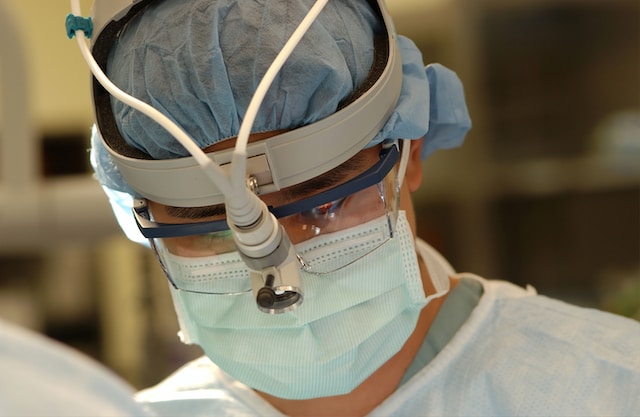Orthopaedics is a medical speciality dedicated to enhancing your musculoskeletal health and helping you regain an active lifestyle. It focuses on diagnosing, treating, and preventing conditions related to the musculoskeletal system.
However, how much do you know about what an orthopaedic specialist means? In this blog post, we will explore what orthopaedics is, the key areas it covers, and the pivotal role of orthopaedic surgeons in maintaining the health of our bones and joints.
What is Orthopaedic?
Orthopaedics is a branch of medicine that focuses on the diagnosis, treatment, and prevention of disorders affecting our bones, joints, muscles, ligaments, and tendons.
It encompasses an array of conditions that can be caused by various factors, such as accidents, sports injuries, arthritis, and degenerative diseases. The main goal of orthopaedic specialists is to maintain, restore, and improve the functionality of these intricate structures to help patients regain mobility and lead fulfilling lives.
According to the American Board of Orthopaedic Surgery, certified orthopaedic surgeons are all trained surgeons. Some may not perform surgery anymore, but they still treat patients. Other orthopaedic surgeons may teach, conduct research, or have administrative responsibilities.
This practice extends to patients of every age, from newborns with club feet to young athletes in need of arthroscopic surgery to older individuals with arthritis. There are some key areas in orthopaedics; let’s get to know them below.
Orthopaedics: Key areas and specialities
There are several key areas that orthopaedic specialists are trained to address. Whether it’s a sprained ankle from a vigorous workout or chronic back pain that hinders your daily activities, orthopaedic care is here to lend a helping hand. The areas of expertise include:
- Sports Injuries: orthopaedic surgeons with a specialization in sports medicine are skilled in diagnosing and treating a wide range of injuries, from torn ligaments and fractures to overuse injuries and concussions.
- Trauma: accidents happen, and when they do, orthopaedic surgeons are at the forefront of managing traumatic bone fractures and injuries.
- Arthritis: orthopaedic specialists offer comprehensive treatment options to manage arthritic conditions, including medication, physical therapy, joint injections, and, in severe cases, joint replacement surgeries.
- Degenerative Diseases: degenerative conditions such as osteoarthritis and degenerative disc disease can affect our musculoskeletal system. Orthopaedic surgeons utilize a range of non-surgical and surgical approaches to alleviate pain and enhance mobility, tailored to each individual’s unique needs.
Medical News explains there are more subspecialties such as orthopaedic oncology, pediatric orthopaedics or spine surgery. Read more to keep learning about specialities.
What does an Orthopaedic Surgeon do?
Orthopaedic surgeons are the backbone of orthopaedics. These professionals are not only highly trained but also committed to guiding you through your journey towards physical well-being.
The role of an orthopaedic surgeon involves four stages, according to OrthoInfo:
- Diagnosis
- Treatment
- Rehabilitation
- Prevention
To accurately diagnose the root cause of a patient’s symptoms, Orthopaedic surgeons employ a combination of physical examinations, medical history reviews, imaging studies (such as X-rays, MRI scans, and CT scans), and sometimes laboratory tests.
Orthopaedics Treatment: Surgical and Non-Surgical Options
Orthopaedic treatment plans are as diverse as the conditions they aim to address. Depending on the nature and severity of your ailment, your orthopaedic surgeon will formulate a personalised treatment strategy.
Here are two broad categories of treatment options:
Surgical Interventions
When conservative treatments prove insufficient, orthopaedic surgeons may recommend surgical procedures. These can range from minimally invasive surgeries to more complex procedures. Medical News Today explains some of these are:
- Total joint replacement (TJR)
- Arthroscopic surgery
- Fracture repair surgery
- Bone grafting surgery
- Spinal fusion
Non-Surgical Alternatives
In many cases, orthopaedic conditions can be effectively managed without resorting to surgery. Non-surgical options -also known as In-Office procedures- may include:
- X-rays
- Physiotherapy
- ultrasound scans
- Exercise programs
- Medications
- Injections
- Changes in lifestyle habits
In addition, Orthopaedic surgeons work closely with physiotherapists, pain management specialists, and other healthcare professionals to create an integrated treatment plan that yields optimal results.
Learn more about treatment options
Every person and their musculoskeletal health journey are unique. A specialist in orthopaedics can carefully assess your condition and recommend the most appropriate course of treatment.
Looking for an orthopaedic centre in Malta? Googling orthopaedic doctors near me? At DaVinci Health, our private clinic has the best orthopaedic doctors in Malta who will work hand in hand with you to provide the best treatment.
Visit our website, find a doctor and book your appointment. We’re here to help!


